- Home
- Tad Williams
The Heart of What Was Lost Page 3
The Heart of What Was Lost Read online
Page 3
“Yes, Lord Magister.” Hayyano crossed his forearms over his breast in ritual acknowledgment, then led his Sacrifices out again.
When he was gone, Yaarike shook his head. “I am glad that the Singers here with us have a field commander like Tzayin-Kha,” he said. “She at least is clever and thinks before speaking. What is the Order of Song doing at this moment?”
Viyeki did not like the Singers. Like most servants of the other orders, he distrusted the spell-wielders and was terrified of their great master, Akhenabi, Lord of Song, the most powerful person in Nakkiga but for Queen Utuk’ku herself. “Tzayin-Kha said she would send her followers out in false skins to look upon the enemy’s numbers and disposition. And that they would light the fires of unease among the mortals.”
“Good. I am glad to hear they are occupied.”
For a moment, Viyeki thought he could see the weariness behind his master’s immobile face. “I will occupy our Builders as well, Master,” he said. “With your permission, I will go and see that the well is cleared of stones.”
Yaarike nodded. “Yes, do so, Viyeki-tza. Shoring up the defenses of this place will be thirsty work.”
He bowed. “It will be done before the Lantern is on the horizon.”
“So if you don’t want to spend the rest of your life soldiering, what are you doing here in the coldest part of the north, little Dogfish?” They were sharing Porto’s horse, and the older man was trying to keep Endri distracted. The young man had gone pale when the Northern thane in charge of the mercenaries had given them their orders, and in the two days’ riding since then Endri’s thoughts had been spinning again and again through the same dismal eddy. “Why aren’t you home helping your father make seed cakes?”
“I wanted to see something of the world.”
Porto laughed. “And you succeeded! This is certainly something.”
“Something dreadful.” The youth suppressed a shudder. “Honestly, it’s an old story, Porto—too foolish to tell. It was a girl.”
“Ah. Her stomach grew large and you began to feel the urge to travel.”
“No!” But the young man seemed almost pleased by the idea. “No, not like that. She chose another man. Didn’t want to be wed to a baker’s son. Didn’t want her pretty hands to turn red and sore kneading bread all day, I suppose. I couldn’t . . . I didn’t want to see her. Her family lived just across from us. So I followed Lord Halawe to Erkynland—to the fighting at the Hayholt.”
“Where Lord Halawe was eaten by dirt-goblins, if I remember correctly.”
Endri winced. “I didn’t see it, but I heard about it.” He made the sign of the Holy Tree. “God rest him. He was a good man.”
“I’ve heard that.”
“And God preserve us all.” Endri made the Tree again.
Porto made the Tree as well. “So all this is just to avoid seeing a girl who threw you over?”
“I didn’t think I would end up here, that’s certain.” A moment later he brightened. “But you, Porto? Do you have a girl back home?”
Porto nodded. “My wife, Sida, may the Aedon bless her and keep her. And our little son who was but a babe in arms. The Lord only knows when I’ll see either of them again.”
“You’ll see them again.” When his mood shifted, Endri could be as cheerful and confident as a child. It reminded Porto of his younger brother Andoro, dead ten years or more, and gave him a pang in his chest. “We will come out of this,” the youth said, as though Porto had been the worried one. “You’ll see.”
His attempt at distraction successful, Porto smiled. “I’m sure you’re right.” But he knew that the deep silent woods and the gray sky would drag the young man back into worry again before too long. “Heá, do you know any songs?” he asked.
Endri laughed. “The Gallant Men of Harborside, of course. I know all the words, even the part about laying the Dogfish low.”
“And me stuck in the saddle in front of you, unable to escape.” Porto rolled his eyes. “Go ahead, then, you ungrateful wretch. Make me regret all my kindness.”
Endri’s singing had ended hours earlier, and conversation had ended not long afterward. As they rode deep between brooding hills, the cold grew and silence settled like a fog over the ancient road.
They first saw the ruins of the castle from the base of the pass, a dark tumble of oblong shapes nestling close to the snow-flecked summit. As they drew nearer, hour by struggling hour, and as the walls of the pass rose higher and higher on either side, plunging them into mist and deep shadow, Porto began to feel he was being dragged helplessly toward the ancient fortress, as if it were some great mill whose stones would grind him to powder.
“I don’t understand,” said Endri suddenly, his voice startling Porto out of the long quiet. He made the sign of the Tree for perhaps the dozenth time in the last hour. “Sweet Elysia, why did we have to come to this dreadful place? Look at that! Why would Duke Isgrimnur bring us here? He said we were going to a border fort.”
“Stop your sniveling, Southerner,” called a young Rimmersman riding near them. “You shame us all.” The rider was thick as an ox, with a bristling reddish beard that covered much of his broad face; on his shield was painted a red eagle, which told Porto this must be Floki, Thane Brindur’s son.
“That is a border fort,” Floki said. “It just happens to be one of the enemy’s, that’s all.”
“Very clever,” said Porto. “But my friend’s right. We didn’t join for this. We came for a post on the Rimmersgard border.”
“Six coppers and food every month,” said Endri.
“One silver, four coppers for me,” Porto said. “Because I have my own horse.”
“But I never said I’d fight the Norns!”
Porto could feel Endri shivering against his back, and knew it was from more than the cold.
“I want to go back,” Endri said.
“You didn’t think you’d fight the Norns?” brayed Floki, his laugh loud and harsh. “What did you think you’d be doing in a border fort at the edge of the Nornfells?”
“I didn’t know we’d go so far,” said Endri. “—that we’d . . . that they would . . .” He trailed off into silence.
“Don’t let this one discourage you—we’ll get back home again,” Porto told his young friend, but he was not as confident as he tried to sound. “I’ll take you with me, Endri. You’ll like the Rocks. My wife’s father is a dyer, a wealthy man. He’ll give you a place, you’ll see.”
“He certainly won’t give that one a place as a soldier,” said the Rimmersman. “Not the way he moans.”
“Shut your mouth, Northman,” said Porto. “I’m beginning to hate the sound of your voice.”
Brindur’s son brought his horse closer, and for a moment Porto was afraid he’d have to fight him, but the Northman seemed to have noticed Porto’s unusual height. “You’ll feel differently about me when the White Foxes are at you, you southern milksop.” The bearded youth put his heels to his horse’s ribs and raced ahead of them. “Then you’ll be crying out for me, not your little catamite here,” he called back over his shoulder. “‘Floki, come save me from the Vit Refar!’ That’s what you’ll say.”
“I pray that I lose my voice before my tongue ever shames me.” It was an old Perdruinese saying which Porto had uttered many times, but he had never meant it more.
“He’s right, though,” said Endri. “I am no soldier. I’m frightened.”
“I fought beside the great Sir Camaris himself when he led Josua Lackhand’s army in Nabban. I was afraid then, I’m afraid now. There is no shame in that.”
“I don’t care about shame, Porto. In all truth, I just want to go home.”
Isgrimnur’s men reached Skuggi Pass and made camp on the slopes beneath the ruined castle, beside the army Vigri had brought from Elvritshalla. The meetings of men who had not seen each other fo
r many long months gave the gathering an air of festival, despite the cold and the flurrying white flakes.
Although the addition of the jarl’s soldiers had more than doubled their numbers, Duke Isgrimnur still did not feel entirely at ease. Again and again his gaze was drawn to the broken walls at the top of the pass and the eyes he knew were watching there. He had more experience with the White Foxes than any of his men. Even a small troop of Norns could create chaos in opposing armies, and they were harder to kill than angry bees.
He looked over to Vigri’s large campfire, where short, stocky Vigri sat surrounded by his thanes, all drinking and laughing. Vigri saw Isgrimnur and waved for him to join them. The duke raised his hand to say, soon. He was not quite ready to take his leisure.
Best to follow the hunt while the trail is new, as my father always said. He turned his attention back to the Sitha-woman Ayaminu, who sat across from him. She was carving a walking stick out of a long ash tree branch and seemed as composed and heedless of the falling snow as a statue.
“Why is it still so bloody cold here in late Yuven-month?” he growled. “I thought the Storm King was gone for good.”
Ayaminu did not look up. “Ineluki sang up many great storms. They will not go away again so quickly simply because his influence is ended. Besides, it is always cold here.”
Isgrimnur brought his hands close to the fire again. “We have a large troop of the Norns that attacked Erkynland trapped in these ruins,” he said more quietly. “If you sent your people a message, Ayaminu, would they come? Would they help us to finish this once and for all?”
She returned a look that he could not interpret. It was always difficult with the Sithi, whose emotions and even ages were largely a mystery to mortals. He knew Ayaminu was venerable among her kind, perhaps even ancient, but to look at her she seemed scarcely different than one of the younger Sithi women like Jiriki’s sister Aditu. Perhaps her skin was thinner, her movements less robust—there were times when she almost seemed fragile, like a woman once considered a beauty but recently recovered from a long illness. Her golden eyes, though, were as bright as his wife Gutrun’s angriest stare, fierce as a hunting hawk’s.
“No,” the Sitha said at last. “As I told you before, Duke Isgrimnur, my people will not come. The Zida’ya fought as allies to you Sudhoda’ya—you mortals—but that does not mean our paths will always lead the same way from now on. We will not help you destroy our kin.”
“Then why are you here? Why travel all this way simply to watch?”
She turned the long staff she was working on this way and that to examine it in the firelight before putting blade to wood again. “You speak as though watching and learning have no value in themselves.”
Isgrimnur shook his head. Talking to the Sithi often felt like arguing with drunkards or children—not that they spoke foolishly, but the conversation always went around in circles until he forgot where it had begun. Perhaps she meant what she said—that she was only here to observe—but the duke did not trust it. Do Simon and Miriamele understand how unlikely it is that we will be able to live comfortably beside such strange creatures as these fairies? We will sooner make partnership with the birds of the air, I think. They are just too different from us—nor do they think we are worth the trouble of honest explanations. “Please do not muddle me with tail-swallowing words, Mistress Ayaminu,” he said. “Of course learning has value, but so does fighting to protect ourselves.”
“The Hikeda’ya are retreating to their own land.” The Sitha’s voice was mild, as though she merely proposed another interpretation.
The duke struggled to keep his temper. “Yes, after pillaging and murdering all over the north—and through Erkynland too. After trying to throw down the mortal kingdoms and set their dead master over all of us.”
She might have been amused, but he could not be sure. “So you will teach them not to do that by doing the same thing. Blood for blood.”
Isgrimnur shook his head. “Simon and Miriamele, the new king and queen in the Hayholt, bade me only make sure the retreating Norns can do no further harm. But without help from your people, I think I have no other choice but to ensure their good behavior by ending their race completely—that is what I think, more and more.”
“And you wonder why my people will not help you.”
“I wonder less, now that I have spent time with you, Lady Ayaminu.” Despite his best efforts, the duke was finding it hard to keep anger at bay. “It’s clear that you think nothing your Norn cousins do is worth punishment.”
“No, that is not true. But that is because I know the Hikeda’ya will punish themselves—are already punishing themselves—more deeply than you can understand.”
“Enough.” Isgrimnur rose in disgust. “Where I come from, we do not let murderers choose their own sentences.” He left Ayaminu to her carving and headed to the larger fire where Jarl Vigri and his thanes were passing a skin bag. The sun was down, and the crags behind the White Foxes’ castle gleamed like crooked teeth in the last light.
“You are back, my lord!” shouted Vigri. “The ale-feast has its guest of honor!” Vigri of Enggidal was a short man about whom it was an old joke to suggest there might be trolls in his family tree, but he was burly and strong. More than a few arguments at the jarl’s own supper table had ended when, offended by something, Vigri had picked up one end of the great oak trestle and flipped everything on it to the floor of the dining hall, often tumbling a few guests into the straw at the same time. Isgrimnur was glad to have Vigri beside him again. He was a steadier, more trustworthy lieutenant than Brindur, who blew hot and cold, or Brindur’s son Floki, who blew only hot.
Vigri and his carls seemed surprisingly drunk for so early in the evening, but the duke and his men had only just arrived and Isgrimnur knew it must have been difficult for Vigri’s soldiers to wait for reinforcements in an enemy land, especially a spot as gloomy as this, a place so ill-omened that Rimmersmen never ventured here, though the Norns had deserted the crumbling fortress centuries earlier. Vigri and his men would likely have spent the last several days praying for the arrival of Isgrimnur’s troop and hearing and seeing evil spirits in every shadow. Small wonder if they celebrated now. “I had to see to a few things. My men are not happy. Most of them expected to be at home in Elvritshalla by now.”
“My men feel the same, my lord,” said Vigri. “They heard a fortnight ago that the war was over, and not much before that, they learned that Skali Sharp-Nose is dead. We have won, so why are we still fighting?”
“It is one thing to win,” said the duke. “It is another to convince your enemies that they have lost.”
Vigri grinned. “Killing them is a good way to do that.”
Isgrimnur made a sour face. “Killing Norns is never as easy as it sounds. How many of them are here, and how are they disposed?”
“It is hard to say, Your Grace. They move in and out of the shadows like cats. Also, they look so much alike that it might be one Norn soldier seen in a dozen different places.”
“Then give me your best guess.”
“Perhaps as few as four score or so, perhaps as many as three hundred. But we have seen no giants among them.”
“That’s something to thank the good God for, at least.” Isgrimnur looked around the fire. “And what of us? Most especially, how many archers do we have? I know the White Foxes too well to charge in. We will pick off as many as we can.”
“I have a troop of Tungoldyr bordermen who can do what is needed with a yew bow,” Vigri said, and waved for the skin once more. “I would put them against any archers in the south, even the Thrithings-men.”
Isgrimnur nodded. “And I have my crossbowmen who were with me in Erkynland—those that survived, God save the rest. Those bolts will put a pretty hole even in that damnable witchwood armor.” The duke leaned and began to scratch with a stick on the snow-spattered ground. “So what does t
hat make it? I brought a company of paid men for the forts, most of them foot soldiers, but a few lances as well. Most of them are untried, though, and new to the north. I also have a company out of Hringholt, as well as Tonnrud’s brother Brindur and their Skoggeymen. What does that make?” He scratched a few more times, frowned. He had not brought anywhere near as many men back from Erkynland alive as he would have hoped, and it pained him deeply. “With yours and mine we must have twelve hundred soldiers altogether, Vigri.” He felt a little better, and this time he reached out his hand for the skin as it went around. After a long swallow, he wiped his beard with the back of his hand, then took a second sizable gulp—he had given Vigri and the others a long head start on the drinking, after all. “And the siege machinery we passed on the road?”
“That is what I ordered sent from Elvritshalla, a few stone-flingers and a great iron battering ram to knock down gates and walls—the biggest one we’ve got.”
“Is it the Big Bear?” asked the duke with a smile. “I haven’t seen that snarling monstrosity for years. No wonder there were so many horses hitched to the wagon—that thing is heavy as a mountain!”
“Yes, it’s the bear. But if we want to use it, we will have to find a tree trunk big enough and strong to mount the head on.”
“We will not need the ram here, I think,” Isgrimnur said. “There is hardly wall joined to wall in that tumbledown place.”
“Better safe than sorry,” Vigri said. “Especially with the White Foxes. They are tricksy as weasels.”
Isgrimnur nodded. “By all that is holy, you are right about that. I wish we fought men. God grant that at least it all goes quickly. Damn me, where has that sack of ale gone?”
“Why is it always so bloody cold these days?” Endri asked sadly. “It’s supposed to be summer!” A tattered rag, dropped by some other soldier, had joined his woolen scarf; with both wrapped around his skinny neck, Porto thought the young Harborsider looked like a turtle. But, he thought, a turtle would be better protected. Endri’s aged chain-link armor had more than a few links missing.

 God Rest Ye Merry, Gentlepig
God Rest Ye Merry, Gentlepig Tailchaser's Song
Tailchaser's Song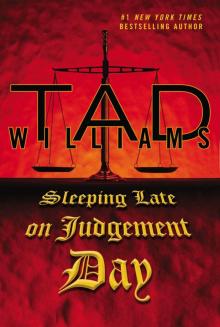 Sleeping Late on Judgement Day
Sleeping Late on Judgement Day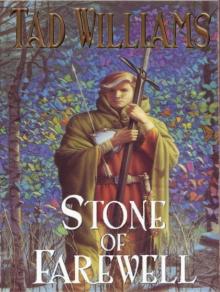 Stone of Farewell
Stone of Farewell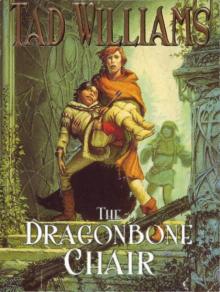 The Dragonbone Chair
The Dragonbone Chair Sea of Silver Light
Sea of Silver Light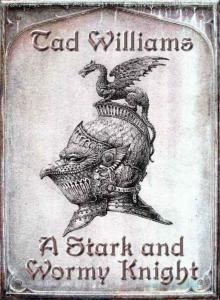 A Stark and Wormy Knight
A Stark and Wormy Knight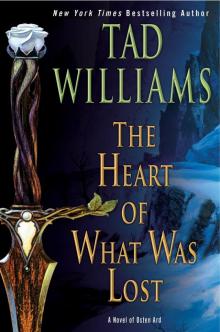 The Heart of What Was Lost
The Heart of What Was Lost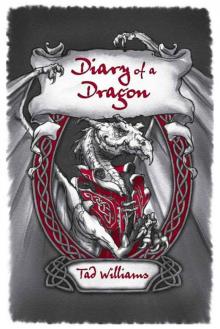 Diary of a Dragon
Diary of a Dragon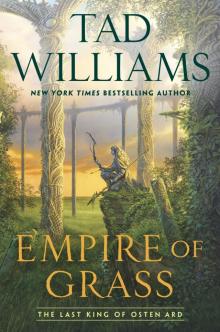 Last King of Osten Ard 02 - Empire of Grass
Last King of Osten Ard 02 - Empire of Grass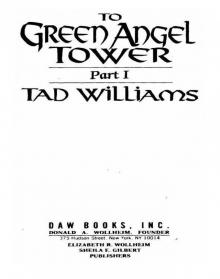 To Green Angel Tower, Volume 1
To Green Angel Tower, Volume 1 The Dirty Streets of Heaven
The Dirty Streets of Heaven River of Blue Fire
River of Blue Fire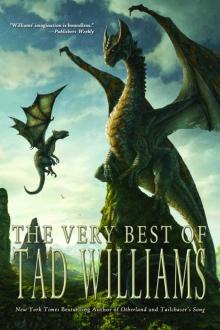 The Very Best of Tad Williams
The Very Best of Tad Williams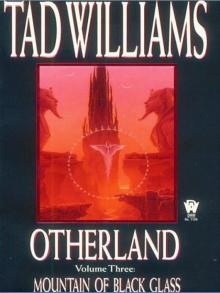 Mountain of Black Glass
Mountain of Black Glass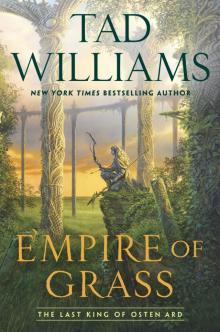 Empire of Grass
Empire of Grass City of Golden Shadow
City of Golden Shadow Happy Hour in Hell
Happy Hour in Hell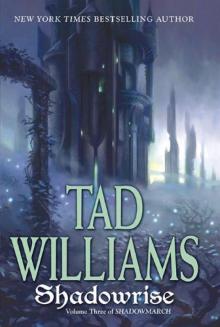 Shadowrise
Shadowrise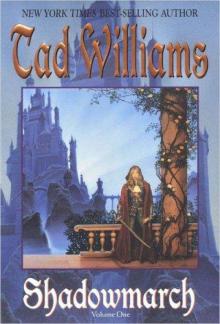 Shadowmarch
Shadowmarch Brothers of the Wind
Brothers of the Wind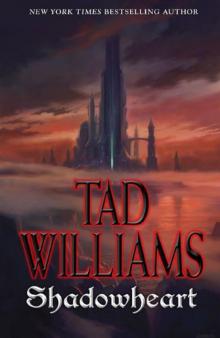 Shadowheart
Shadowheart Bobby Dollar 02 - Happy Hour In Hell
Bobby Dollar 02 - Happy Hour In Hell The War of the Flowers
The War of the Flowers The Dirty Streets of Heaven bd-1
The Dirty Streets of Heaven bd-1 Tad Williams - The War of the Flowers (retail) (pdf)
Tad Williams - The War of the Flowers (retail) (pdf) Shadowheart s-4
Shadowheart s-4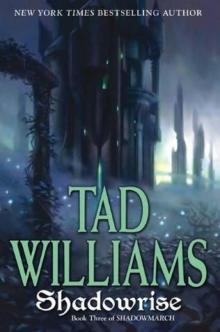 Shadowrise s-3
Shadowrise s-3 The Dirty Streets of Heaven: Volume One of Bobby Dollar
The Dirty Streets of Heaven: Volume One of Bobby Dollar The Stone of Farewell
The Stone of Farewell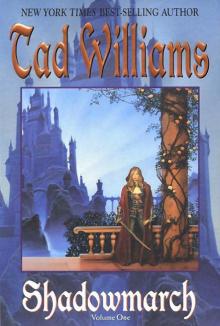 (Shadowmarch #1) Shadowmarch
(Shadowmarch #1) Shadowmarch The Secrets of Ordinary Farm of-2
The Secrets of Ordinary Farm of-2 Shadowmarch s-1
Shadowmarch s-1![Bobby Dollar [04] God Rest Ye Merry, Gentlepig Read online](http://i1.bookreadfree.com/i1/04/06/bobby_dollar_04_god_rest_ye_merry_gentlepig_preview.jpg) Bobby Dollar [04] God Rest Ye Merry, Gentlepig
Bobby Dollar [04] God Rest Ye Merry, Gentlepig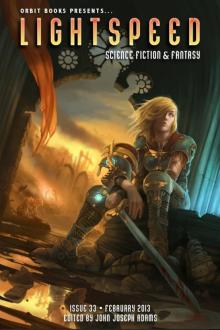 Lightspeed Issue 33
Lightspeed Issue 33 Sea of Silver Light o-4
Sea of Silver Light o-4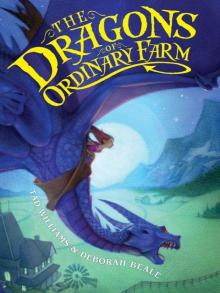 The Dragons of Ordinary Farm of-1
The Dragons of Ordinary Farm of-1 Shadowplay s-2
Shadowplay s-2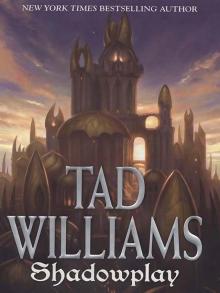 (Shadowmarch #2) Shadowplay
(Shadowmarch #2) Shadowplay